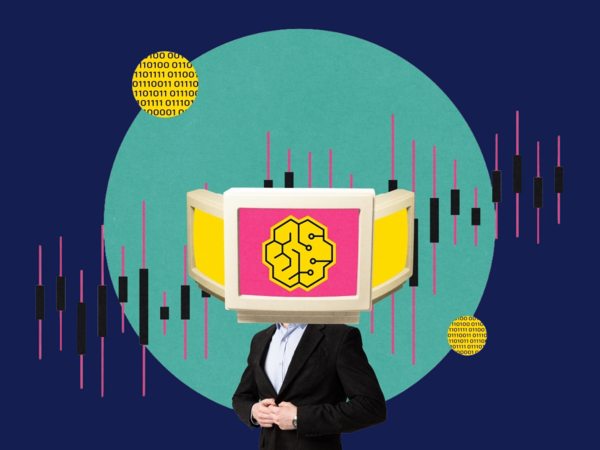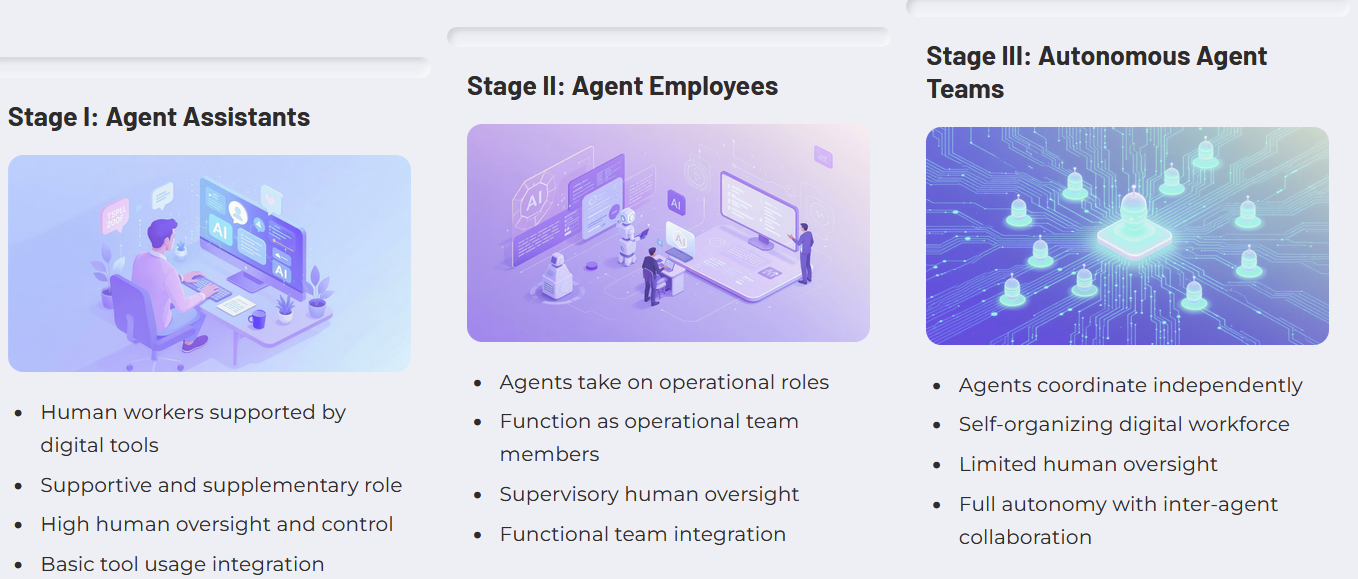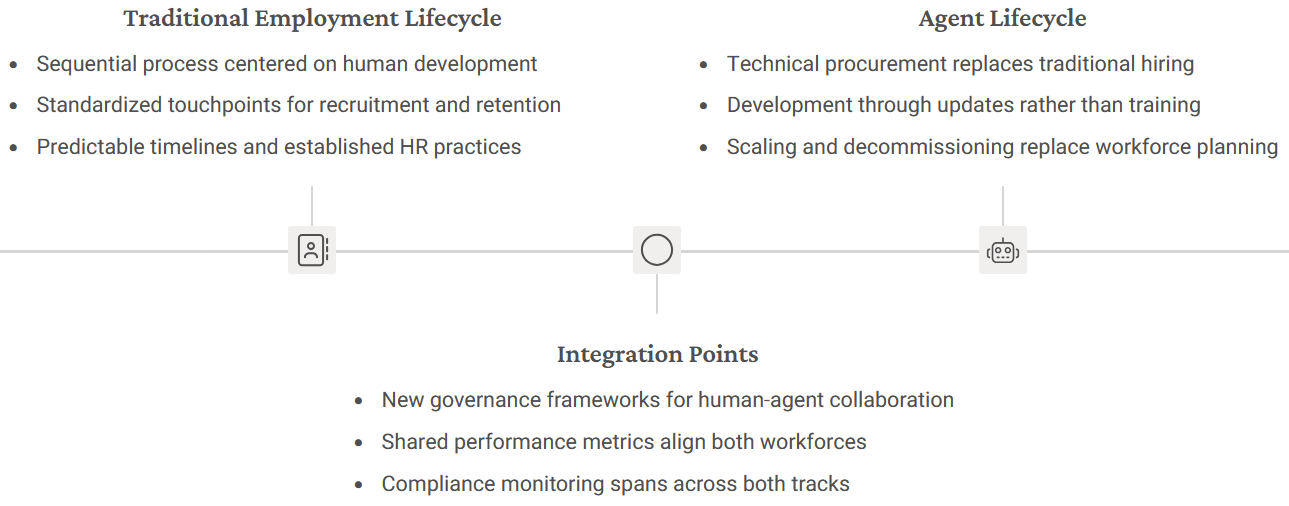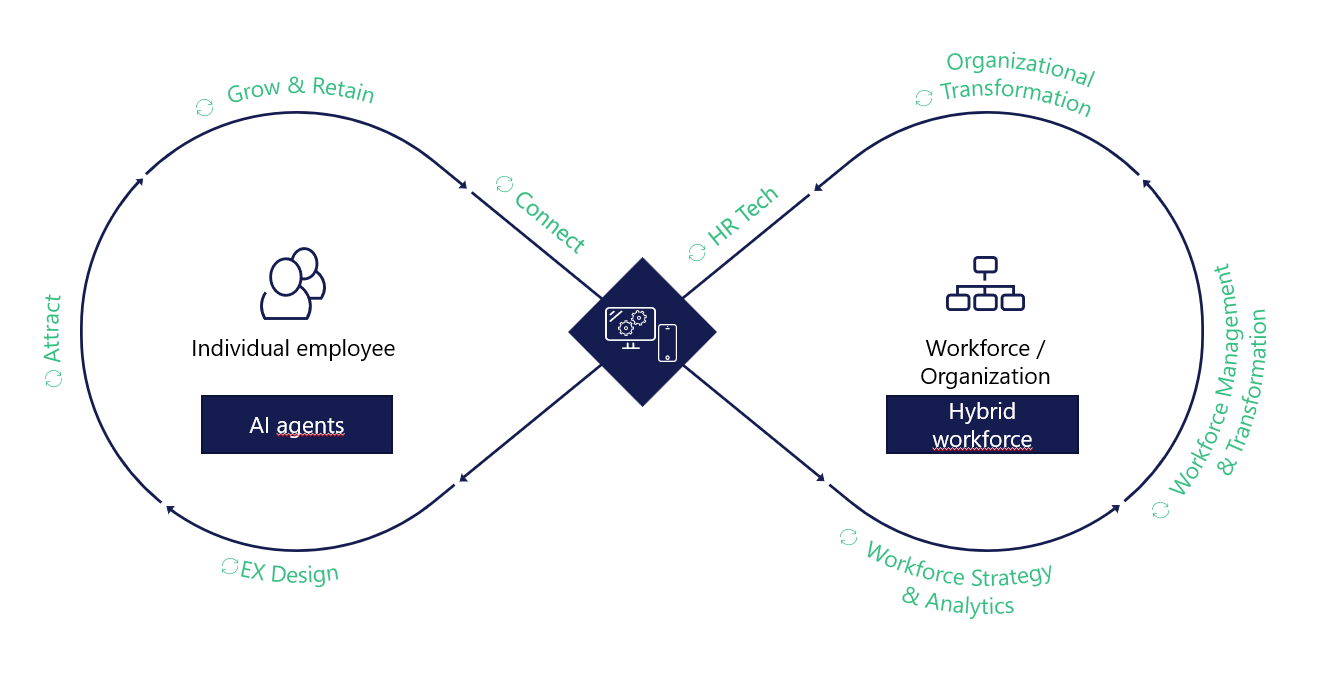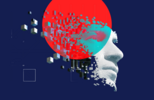Reprogramming HR: How the Agentic Economy Is Redefining the Workforce


Across industries, AI-based systems — often referred to as agents - are moving beyond the back office. They're not just analyzing data or automating tasks — they're starting to participate in core business functions: running marketing campaigns, managing financial portfolios, even coordinating with customers and vendors.
These agents are designed to act with a degree of autonomy. They can make decisions, learn from outcomes, and interact with humans and other systems. In some organizations, agents are already functioning as digital team members. In blockchain-based ecosystems, agents are even moving toward full financial sovereignty — eliminating key points of human intervention.
That raises a pressing question: What role does HR play in a workforce where not everyone is human?
HR has a vital role to play — not just reacting to change, but actively shaping the future of work
The Rise of the Augmented Workforce
We’re entering an era of the augmented workforce — teams made up of:
- Regular employees (on the company’s payroll)
- Freelancers and contractors
- And now, AI agents that operate alongside humans and sometimes independently
This isn’t just about automating tasks. It’s about rethinking how work is structured and who — or what — performs it.
HR has already expanded its scope in recent years, moving toward total workforce management and the flexible firm model (e.g. Atkinson, 1984; Zölch et al., 2023), where traditional employees and external contributors are managed as a whole. But the rise of AI agents introduces a new dimension, and with it, new responsibilities. As this progression unfolds, the boundaries of HR's role begin to shift.
We can think of this shift in three stages:
Rethinking the Role of HR
Human Resources has always focused on humans — recruiting, supporting, and helping people to succeed. But as AI agents become part of everyday operations, HR must pause and ask:
- What HR tasks are best handled by people — and which by agents?
- How do we measure and develop agent performance?
- What does collaboration look like in mixed human-agent teams?
- What new demands will this place on leadership and management?
- How do we maintain a cohesive culture in an augmented workforce?
This shift isn’t just technical — it’s strategic, even philosophical. It challenges how we think about accountability, collaboration and what it means to belong to a team. Discussions are now emerging around governance: Who sets the rules? Who enforces them — and how?
Organizational theorists distinguish between actors (those who make decisions) and actants (things that influence outcomes) (Latour, 1996). AI agents fall somewhere in between. They shape decisions, interact socially, and influence culture — but they’re not people.
For HR, this creates a need for new models, new tools, and new ways of thinking. In time we may even ask whether Human Resources becomes HAR - Human and Artificial Resources.
Agent Acquisition and the Blurring Line Between HR and IT
As AI agents take on more meaningful work, a practical question emerges: Who is responsible for selecting, onboarding, and managing them?
Is it IT? Procurement? Or should HR have a say? Just as HR plays a central role in recruiting and onboarding human talent, it should also help guide how AI agents are evaluated and integrated — especially when those agents interact with people, make decisions, or represent the company in significant ways.
Doing this well requires new forms of digital fluency within HR:
- Understanding how agents are built, trained, and configured
- Knowing how to define roles, permissions, and decision boundaries
- Assessing whether an agent is fit for purpose— not just technically, but ethically and operationally
This shift also reflects a broader transformation in HR itself. The line between HR and IT is fading. Defining a role - whether for a person or an agent - now requires fluency in systems, data, workflows, and accountability.
If HR wants to remain effective and future-ready, it must work more closely with IT and procurement while still bringing a human perspective to decisions that could easily become overly technical. In the end, it’s not a choice between “AI or humans,” but about AI and humans — together, by design.
The HR Function of the Future
HR isn’t going away — but its job is changing fast. In the years ahead, HR will need to move beyond traditional responsibilities and adopt a more holistic view of how work gets done - and who (or what) is doing it. That means tackling some tough questions. To support this shift, HR will need to:
- Develop strategies that account for both human employees and AI agents — ensuring both align with the company’s goals and operate together effectively
- Design roles and structures where people and agents contribute side by side, with clear boundaries and interfaces
- Create governance models that define how decisions are made, who’s accountable, and how collaboration works across human-agent teams
- Foster a shared culture, where trust, communication, and openness span both human and agent contributors
- Support leaders in navigating the unique dynamics of mixed teams
This shift also redefines some of HR’s most familiar responsibilities:
- Onboarding — not just for people, but also for AI agents: making sure they’re understood, trusted, and ready to operate in the organization’s context
- Performance oversight — not just reading dashboards, but knowing when to intervene and how to evaluate agent behavior and effectiveness
- Acting as a steward of values — ensuring that decisions made by agents still reflect the organization’s ethics, principles, and intent
- Building confidence and clarity — helping teams understand how to work with agents, reduce confusion, and foster healthy collaboration
- Workforce planning — now expanded to include both headcount and compute power: agents and humans combined
This isn’t about turning HR into a department of IT experts. But HR professionals do need to be fluent enough in agent systems to:
- Ask the right questions
- Make informed decisions
- Safeguard the human side of the workplace
In a world where teams increasingly include both people and agents, HR becomes the bridge — ensuring that trust, accountability, and purpose stay at the center of how work gets done. This article is the first step in exploring how AI agents are reshaping HR. We believe HR has a vital role to play — not just reacting to change, but actively shaping the future of work.
We’re Not the Only Ones Thinking About This. Are You?
- Are you rethinking your workforce strategy?
- Exploring how agents could support - or transform - your teams?
- Curious about running pilots, joining research efforts, or sharing your own experience?
This article was first published on LinkedIn (16.7.2025).
